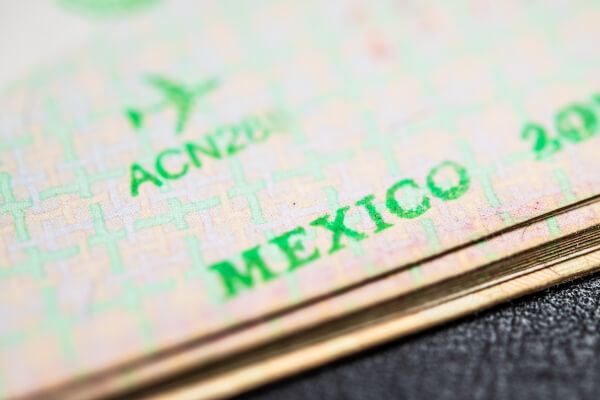Hiring Independent Contractors in Brazil: Legal Guide for 2026
Learn how to hire independent contractors in Brazil. Understand tax rules, compliance, contracts, and how to avoid misclassification risks.

Denmark has an entrepreneur-friendly reputation, making it one of the popular countries to start a new business. The Scandinavian country offers one of the simplest and quickest start-up processes.
The process of setting up a business in Denmark is so simple you can finish it in a day, and handle everything online. Many of the documents you’ll need to complete are available in English.
Furthermore, it’s not a requirement to have Danish residents on your management team, including the CEO position and board of directors.
So, how do you get started?
An ApS only requires a single shareholder, and that individual doesn’t need to be a Danish resident. However, an ApS does require a minimum share capital of 1 40,000 DKK.
Shares within an ApS are transferable, but the company may impose restrictions. Shareholders are only liable up to their personal contribution.
A single shareholder can start an A/S by providing a minimum share capital of 2 400,000DKK, and you must pay at least 25% upon incorporation. Shareholders in an A/S aren’t personally liable for the company’s obligations, and shares can be publicly traded or shared with company members.
A general partnership must have at least two founding members, all of whom are fully personally liable for company obligations. Partnerships must be registered with the Danish Business Authority.
A limited partnership also requires at least two partners, however in a K/S, one partner has unlimited liability while the other has limited liability for the company’s obligations. Like in an I/S, a K/S must be registered with the Danish Business Authority.
You can also set up a company on your own in Denmark as a sole proprietor. Sole proprietors have unlimited liability for the company and must register with tax authorities if they have employees or are involved in certain commercial activities.
There are various ways to obtain a visa in Denmark as a US citizen which would allow you to live and work in the country.
For most entrepreneurs, the best route to starting a business in the country is the Start-up Denmark visa.
The Start-up visa is available to US citizens and other foreign entrepreneurs looking to start an innovative company in the country.
This visa usually takes around a month to process, and includes a ³DKK 2,490 processing fee.
Approval for this visa requires that you satisfy the following conditions:
The process for opening a business in Denmark is renowned for its simplicity.
Here’s a step-by-step guide to navigate the process:
While you should carry out your research to find out which business type makes the most sense for your goals, we’ll focus on the ApS, or private limited company, for the remainder of this guide.
Starting an ApS offers your business the most protection and is one of the most common business types in Denmark.
| Use our Business Name Generator tool to brainstorm ideas for your company name. |
|---|
The first step to set up an ApS, or any other business type, is to register for a CVR number, which serves as a company identification number.
You can register for a CVR number through the Virk.dk online portal. The site is in Danish, so you may want to use a browser like Google Chrome to translate the page into your native language.
To complete the process, you’ll need a NemID or MitID (Denmark’s digital signature system), which you can only secure with a residence or work permit in the country.
If you don’t have either, you can hire a lawyer who will set up the company for you, without a personal NemID. Conveniently, Denmark’s Ministry of Foreign Affairs has put together a list of trusted service providers who you can contact to take on that role.
Whether you decide to go through the process yourself or through a lawyer, here’s everything you’ll need to have ready:
Once you’re registered with the Danish Business Authority (DBA), your information will be automatically forwarded to SKAT (Danish Customs and Tax Administration) for you.
SKAT collects taxes, but also provides tax advice to companies.
You may also need to register separately for these specific types of taxes, depending on your business:
Employers in Denmark must provide a written employment contract if the duration of employment is more than one month, and the employee in question is set to work more than eight hours per week.
Your lawyer can help you generate employment contracts or amend them for any existing employees.
As an employer, you’re legally required to take out industrial injury insurance to cover your employees from workplace accidents and any occupational illnesses. You will pay for this insurance on your employees’ behalf, and it won’t be deducted from their salaries.
Before you get started on the requisite paperwork to set up a business in Denmark, there are a few other important considerations to factor into the process.
Depending on the type of business you set up, you might need to apply for permits or licenses to operate legally. Check in with the relevant Danish authorities to make sure your business remains compliant.
Denmark has double taxation agreements with many countries, including the United States, which will prevent you from being taxed twice on the same income.
Consult a tax advisor to make sure you minimize tax liability and stay compliant with this treaty.
If appropriate, you can transfer your employees to Denmark. This process will look slightly different for every business, but here are the basic requirements:
Non-EU Residents: Employees from outside the EU must apply for both a residence permit and a work permit before they can legally work in Denmark.
EU Nationals and citizens of Nordic countries: EU nationals do not need work permits or resident permits to legally work in Denmark.
Investindk.comhas set up a wealth of resources to help you establish your business in Denmark. Some of their most helpful resources include:
Doingbusiness helpfully breaks down the business registration process and timing for you.
Workindenmark.dk has a variety of business resources regarding business structure, tax, employment, and visas.
If you’re looking for specific information about forming your business in Copenhagen, you can check out Copenhagen’s site for internationals.
For information about Denmark’s special program for start-ups, Start-up Denmark has some great resources.
Setting up a business in a new country can make managing international payments feel like a headache.
Wise offers a cost-effective alternative to traditional banks.
With a Wise Business account, you can easily send, receive, and hold business funds in 40+ at the mid-market rate without paying monthly account fees.
Get local bank account details in major currencies for a one-off fee and make sending money abroad hassle-free with access to 140+ countries.
Open a Wise Business account online
Some key features of Wise Business include:
| Read the guide on how to open a Wise Business account |
|---|
Sources used :
¹ Invest in Denmark
² Invest in Denmark (fact sheet)
³ NYI Danmark
⁴ NYI Danmark
⁵ Intra VAT
Sources last checked on 15-November- 2024.
*Please see terms of use and product availability for your region or visit Wise fees and pricing for the most up to date pricing and fee information.
This publication is provided for general information purposes and does not constitute legal, tax or other professional advice from Wise Payments Limited or its subsidiaries and its affiliates, and it is not intended as a substitute for obtaining advice from a financial advisor or any other professional.
We make no representations, warranties or guarantees, whether expressed or implied, that the content in the publication is accurate, complete or up to date.

Learn how to hire independent contractors in Brazil. Understand tax rules, compliance, contracts, and how to avoid misclassification risks.

Learn how to hire and pay independent contractors in Mexico. This article also includes an FAQ and best practices about working with contractors in Mexico.

Learn how to navigate the overseas worker recruitment. Discover legal requirements, sourcing strategies, visa compliance, and tips for international hiring.

Paying overseas vendors is common, but the hidden costs of B2B cross-border payments aren’t. Learn how to simplify international business payments today.

B2B payment processing doesn’t have to be hard. Learn how growing businesses can simplify cross-border transactions, streamline invoicing and get paid faster.

Discover strategies to enhance B2B payment security, reduce fraud risk, and protect cash flow using secure digital payment methods and automated workflows.